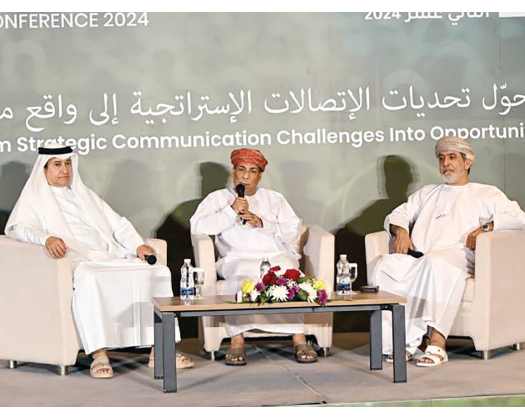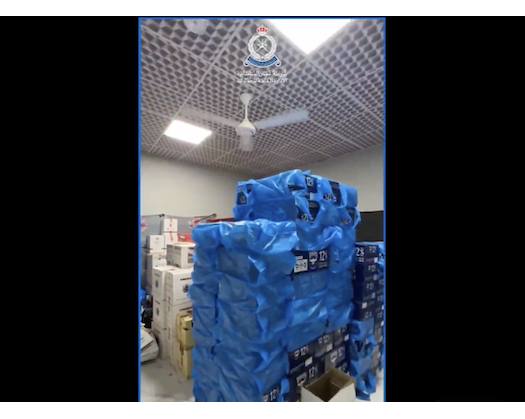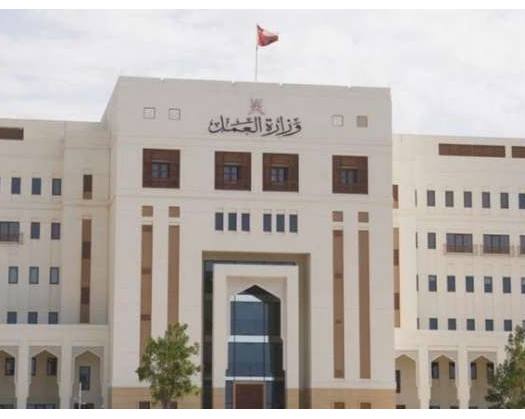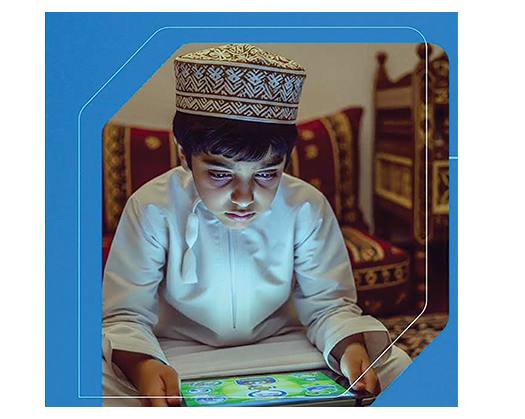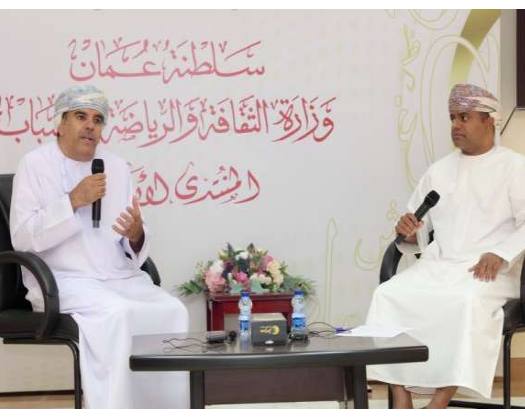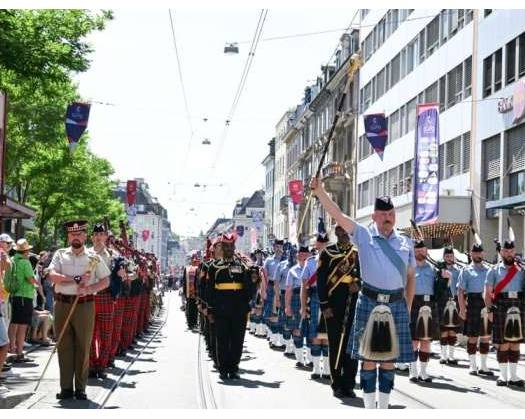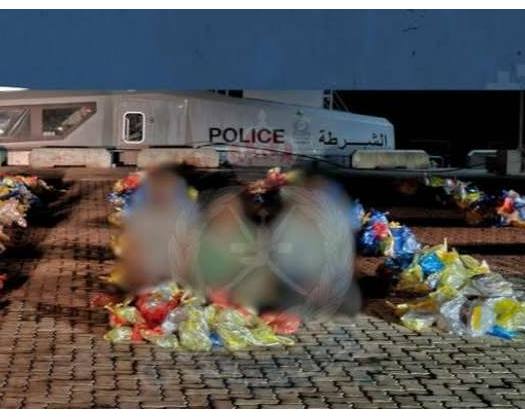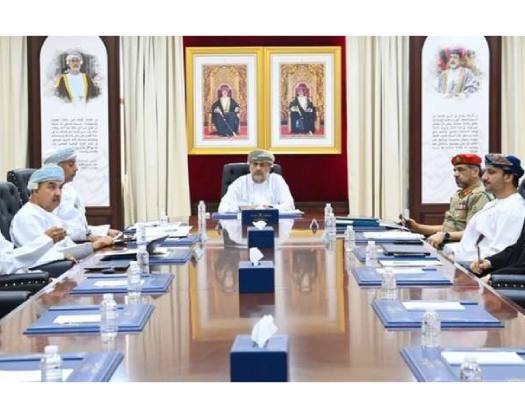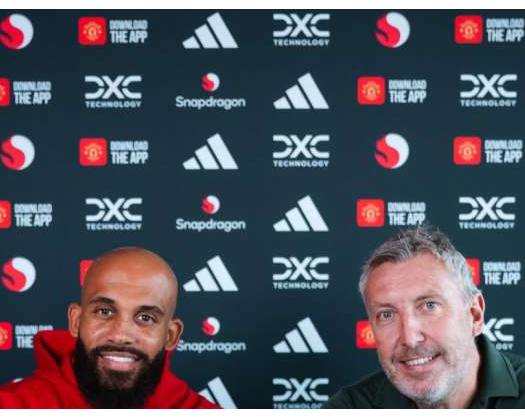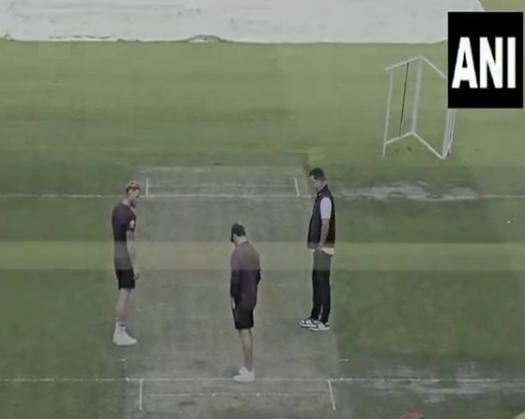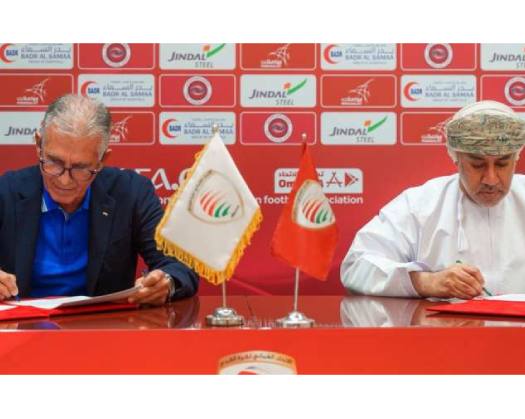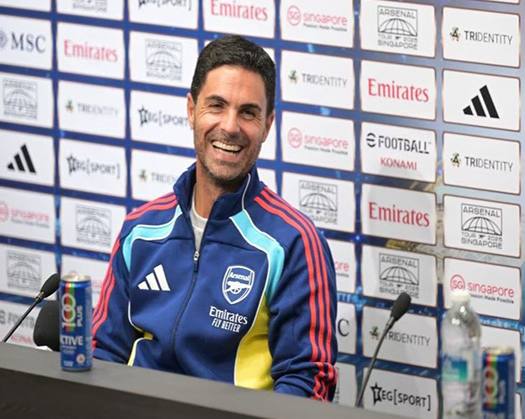Muscat: The twelfth edition of the Middle East Strategic Communications Conference (MESTEC 2024) officially commenced on Tuesday at the Intercity Muscat Hotel.
Organized by the Muscat Media Group (MMG), in collaboration with the Gulf Center for Strategic Communications (GSC) and the Council of Arab International Relations (CARINTER), this year's conference has attracted a distinguished assembly of media professionals, government officials, and communications experts. The gathering aims to explore the evolving landscape of strategic communications within the Middle East and beyond.
The inaugural ceremony was graced by a distinguished panel of officials and industry leaders, including Awad Baqwir, a Member of the State Council, Ahmed Essa Al Zedjali, the CEO of Muscat Media Group, Dr. Mohammed Al Hinai, the Director General of Publications at the Ministry of Information, Dr. Tariq Al Shammari, the Chairman of GSC, Fadi Kattar, the Chief Operating Officer of MMG, Salem Al Jawhari, the Vice President of the Omani Journalists Association, and Salim Al Habsi, an Advisor to the CEO of Muscat Media Group.
The conference also welcomed a diverse array of academics, media professionals, and public relations experts, all keen to engage in discussions on the pivotal role of communications in shaping the future of the Middle East.
MESTEC 2024 is poised to be a pivotal event for industry leaders to engage with the latest trends, challenges, and emerging opportunities within the field of communications.
The inaugural day of the conference featured enlightening sessions, laying the groundwork for a series of in-depth discussions on the influence of media on public opinion, political discourse, and the wider social fabric.
Reflecting on the Legacy of MMG
The event kicked off with a keynote address by Salim Al Habsi, who underscored the organization's critical role in the media landscape of Oman.
"Muscat Media Group has been a beacon of light and warmth for five decades, guiding the path of the nation and society," Al Habsi remarked. He reflected on the significant contributions of MMG to both Omani media and the wider region, highlighting the group's continued innovation and leadership across various sectors, from print to digital media.
Al Habsi underscored the forthcoming Golden Jubilee of Muscat Media Group (MMG), an event that will commemorate its 50th anniversary in the coming year. "Muscat Media Group has stood as a beacon of excellence for five decades, consistently refining its media endeavors with professionalism and expertise," Al Habsi declared. "As we draw closer to this significant milestone, MMG now boasts over 30 media products and multimedia platforms, available in both Arabic and English, with a follower base exceeding four million across its various media channels," he elaborated.
In his discourse, Al Habsi also highlighted the pivotal role of media in molding societal structures and nurturing an informed citizenry. He referenced UNESCO's commendation of free media as a potent instrument for enhancing transparency, political, and cultural progress. "The media occupies a critical position in the lives of individuals and society at large. It disseminates information in formats that are accessible and empowers the audience, thereby shaping their perspectives in ways that foster positive social and political developments," he observed.
The Transformation of Media's Influence on Public Opinion
A principal segment of the conference addressed the shifting dynamics of media's influence on global public opinion. Salem Al Jawhari, the Vice President of the Omani Journalists’ Association, noted that the media's impact has transcended its traditional role as the 'fourth estate'.
"The media is no longer regarded as the fourth authority, as it once was. It has ascended to the second position, primarily due to its influential capacity in shaping global public opinion," Al Jawhari elucidated.
Al Jawhari emphasized the media's pivotal role in the decision-making processes at both national and international levels. "The media has emerged as a crucial collaborator in the decision-making process. It is imperative to acknowledge the media's capacity to shape global discourse and public perception, and to support it accordingly," he stated.
He further reflected on the media's function within the contemporary geopolitical landscape, highlighting its potential to either bolster or detract from national strategies. "Media has been utilized, particularly in the Western sphere, as a means to advance specific agendas. This underscores the necessity for awareness and the commitment of journalists to ethical reporting, especially during periods of crisis or conflict," Al Jawhari concluded.
Evolution of Media Landscape
Dr. Tariq Al Shammari, the esteemed Chairman of the Gulf Center for Strategic Communications (GSC), has provided profound insights into the evolution of media concepts over the past decade. "The media landscape has experienced a notable transformation," Dr. Al Shammari remarked.
He pointed out that in the contemporary era, individuals from diverse backgrounds have assumed roles akin to media professionals in their respective fields. This includes not only parents nurturing their children but also religious figures delivering sermons, illustrating the expansive nature of the media ecosystem.
Dr. Al Shammari further emphasized the critical need for adaptation to these shifts. "The emergence of digital media has redefined the profile of media professionals, extending the role to encompass individuals across various sectors who disseminate information to the public," he elaborated.
Moreover, he underscored the importance of addressing misinformation prevalent in the media landscape today. Drawing from his tenure in the UK, Dr. Al Shammari observed, "It became evident early on that challenging the narratives propagated by Western media required engagement through media channels. This realization led to the establishment of the International Media Relations Council, which is now recognized as the Council for Arab International Relations (CARINTER), aimed at countering misleading media campaigns."
The Influence of Media on Political Discourse
The session also explored the pivotal role of media in the realm of political discourse, emphasizing the critical importance of responsible journalism, particularly during periods of crisis. Al Shammari delved into the challenges faced at a regional level, focusing on the media's coverage of ongoing conflicts in Palestine and Lebanon. He highlighted the issue of media misrepresentation, noting instances where certain outlets disseminate propaganda or inaccurately portray the realities of resistance movements. "It is imperative for media professionals to prioritize truth and accuracy, steering clear of narratives that detract from the pursuit of justice and peace," he articulated.
Al Jawhari concurred with this perspective, stating, "Media entities must remain vigilant against the use of misleading terminology, such as labeling resistance groups as 'terrorist' factions. It is our duty to ensure that the media supports initiatives that advocate for peace, justice, and human dignity."
Furthermore, a significant discussion on Tuesday centered on the intersection of media's evolving role with public relations. As media strategies transition towards digital platforms, there is a growing emphasis on how organizations and individuals can leverage communication to forge deeper connections with audiences. Panelists deliberated on the potential of media to empower communities and catalyze social change through strategies that address contemporary issues like health, education, and family welfare.
Al Shammari underscored the necessity of integrating both traditional and digital media strategies to engage with a diverse audience effectively, especially during periods of social and political turmoil. "Public relations in the contemporary era cannot be dependent solely on traditional media," he remarked. "It is crucial to amalgamate these strategies to engage the public in a meaningful manner."
The conference will continue on Wednesday, featuring more enlightening sessions. Highlights include discussions on contemporary public relations strategies, the role of digital media in education, and the significance of communication in the healthcare sector. Additionally, the prestigious Gulf and Arab Journalism and Media Awards will be presented, acknowledging exceptional contributions to the media sector.
MESTEC 2024 promises to be a pivotal moment in the evolution of strategic communications in the Middle East. With insightful discussions shared on Tuesday, the event has already emerged as a critical platform for media professionals and industry leaders to exchange ideas, collaborate, and chart a course for the future of media in the region.
The event is organized by Nexus Novel, a distinguished advertising and branding agency celebrated for its innovative approaches to growth and its comprehensive suite of services. With its expertise, the event is poised to elevate strategic communication to unprecedented heights.

